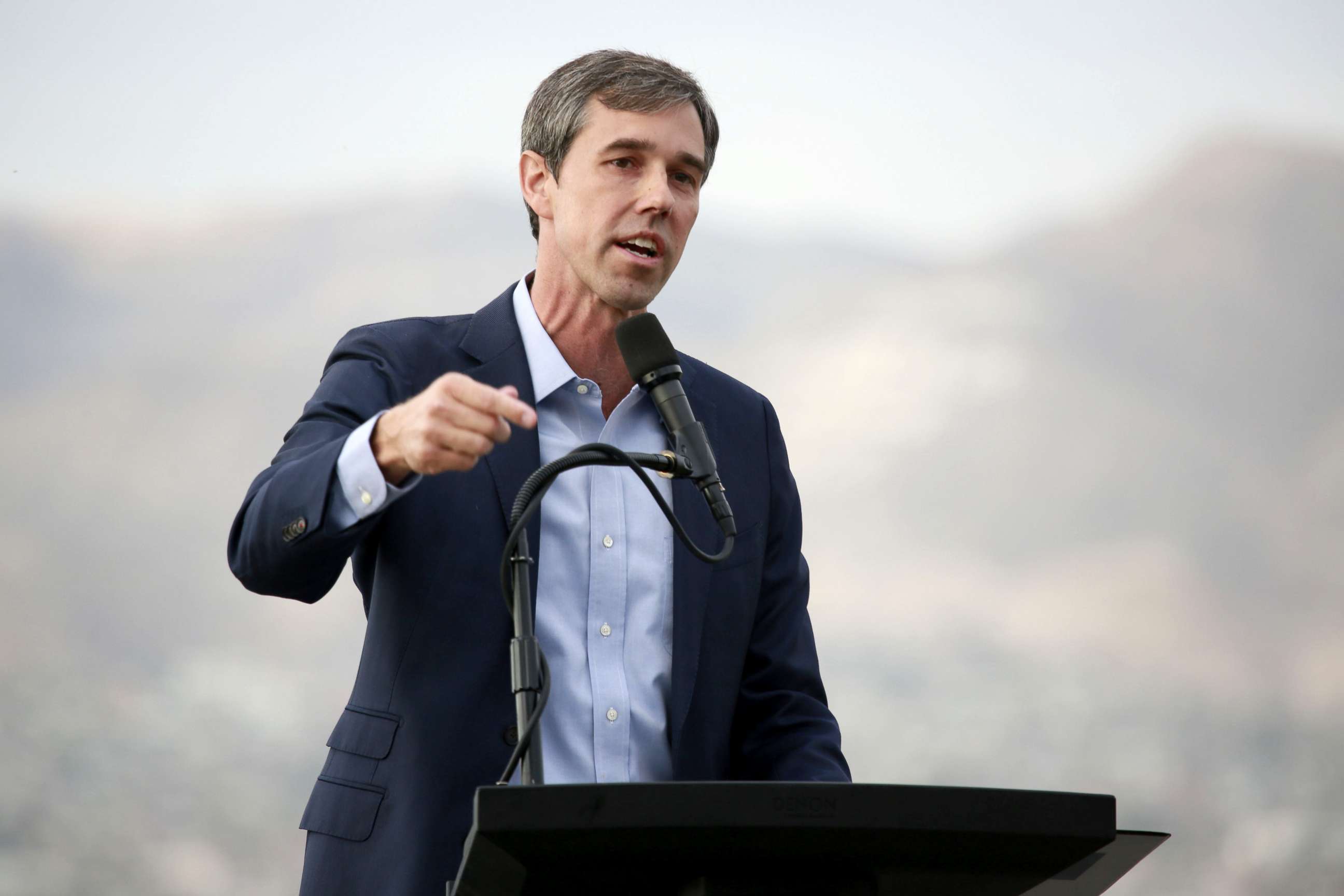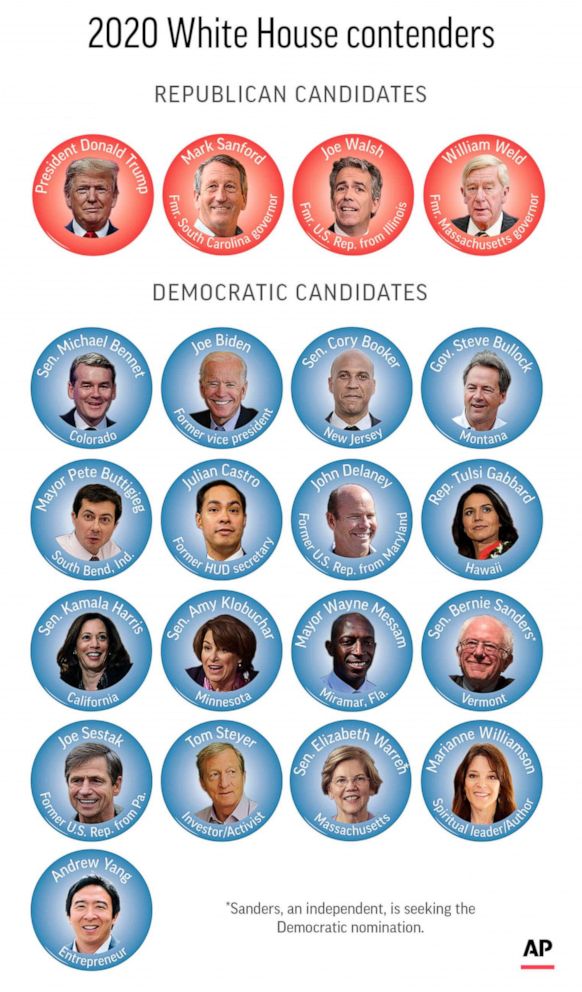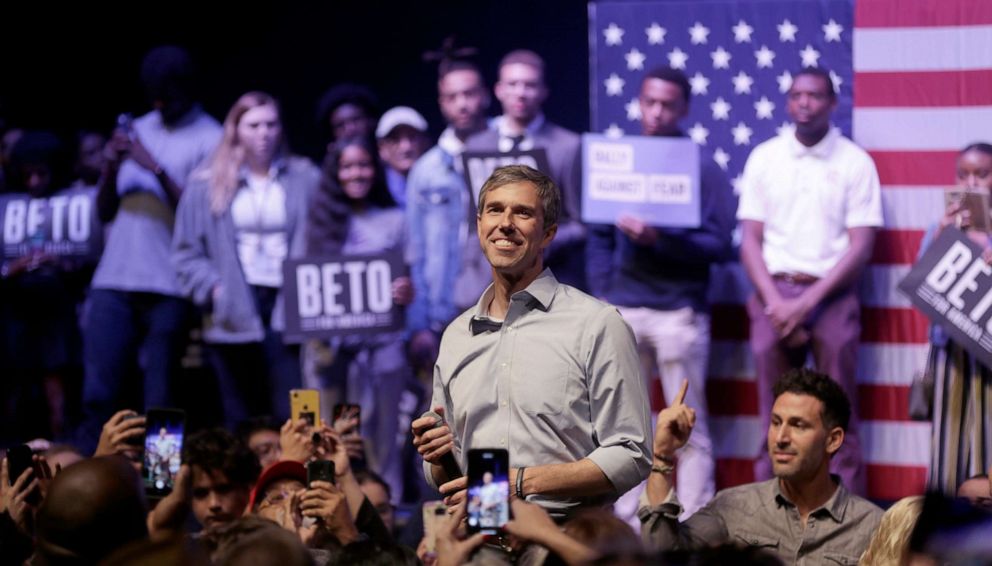Beto O'Rourke ends 2020 presidential campaign
Aides said there's no indication he'll run for anything in the immediate future.
Beto O'Rourke, the former Texas congressman, announced on Twitter that he's dropping out of the 2020 presidential race.
About an hour after informing his staff he was dropping out of the race, O'Rourke joined surprised supporters and volunteers stationed outside an arena in Des Moines, Iowa, where he was scheduled to speak at the Liberty & Justice Celebration Friday night. He spoke for about 15 minutes thanking those who he worked alongside during his campaign that began with high expectations and recently struggled to gain more than 2% in nationwide polls.
"Though this is the end of this campaign, we are right in the middle of this fight. I will do everything that I can to support the eventual nominee of this party with everything that I've got, and I encourage every single one of you to do the same," he said.
O'Rourke urged his backers to support "whoever the nominee is" for the Democrats, and to not only "support them against Donald Trump and make sure that they're successful in November of 2020, but also importantly, making sure that they help to bring together a very divided country in the face of the greatest set of challenges that we've ever known."
Campaign aides told ABC News there is no indication O'Rourke will run for anything in the immediate future. In a recent interview with Politico prior to dropping out O'Rourke said, “I cannot fathom a scenario where I would run for public office again if I’m not the nominee.”
O'Rourke told ABC News he is now focused on doing whatever he can for this country.
“No longer, as a candidate. But with my fellow Americans.”
As for what’s next for the congressman – he said he is heading back home Saturday to be with his family, friends and supporters.
His supporters and volunteers were emotional, tears falling as they took down his campaign lawn signs on Friday. O'Rourke stayed behind for over an hour to thank his supporters and team individually. As he got into his car, the congressman told ABC News he was “grateful” to be part of it all.

The Democrat announced his candidacy in March, prompting media attention and polling numbers that put him among the then-front-runners and leading to an impressive first-day fundraising haul of $6.1 million.
But O'Rourke's stock steadily declined in the following months, with lackluster debate performances, a steep drop in fundraising and a plunge in the polls -- registering no more than 3% or 4% in some national and state polls. He eventually failed to secure two additional polls to qualify for the November debate, which will be hosted in Georgia by MSNBC and The Washington Post.
O'Rourke announced his White House bid just months after losing a closely watched 2018 midterm race in which he challenged Republican stalwart Sen. Ted Cruz, losing by just 3 percentage points. It was the closest race Texas had seen in recent decades. O'Rourke raised a record $38 million in one quarter of 2018, three times Cruz's totals for the same period and the most raised in a U.S. Senate race in history.
Finding viral and documentary fame, O'Rourke traveled to all of Texas' 254 counties, including ones not visited by Democrats in years. It was a strategy he later applied to his presidential bid following a racially motivated mass shooting in his hometown of El Paso, Texas, that claimed the lives of 22 people.

When re-launching his presidential campaign in El Paso after a 12-day hiatus from the trail, O'Rourke said he'd propose a mandatory buy-back program for assault rifles. The proposal was criticized by a number of his Democratic opponents and became a common Republican talking point when defending gun rights.

While pushing the policy boundaries on topics like gun control, marijuana legalization and immigration, O'Rourke also faced scrutiny from the progressive wing of the Democratic Party for not backing policies like "Medicare for All," instead preferring Medicare for America, a policy that would keep private employee-based health care options.
ABC News' Kendall Karson, Rachel Scott and Justin Doom contributed to this report.




